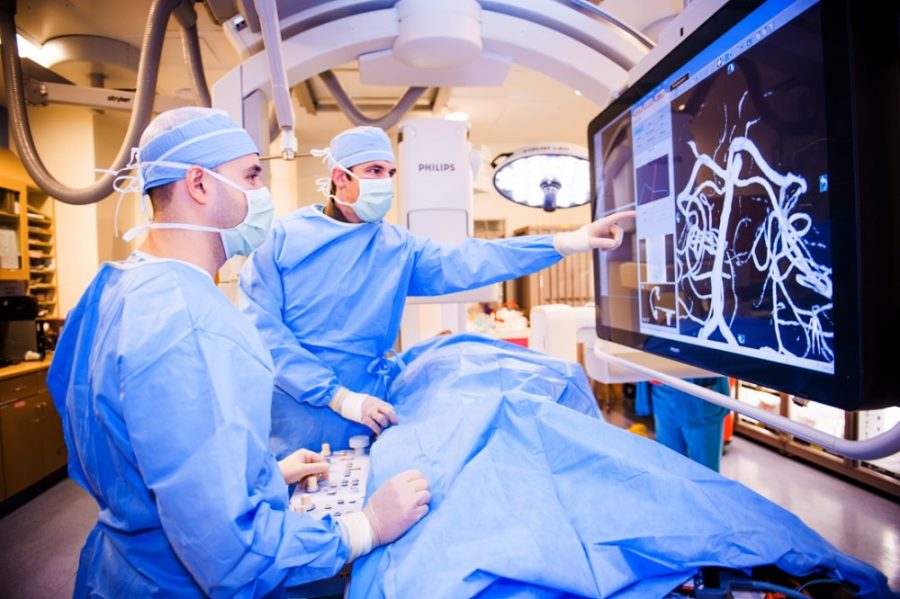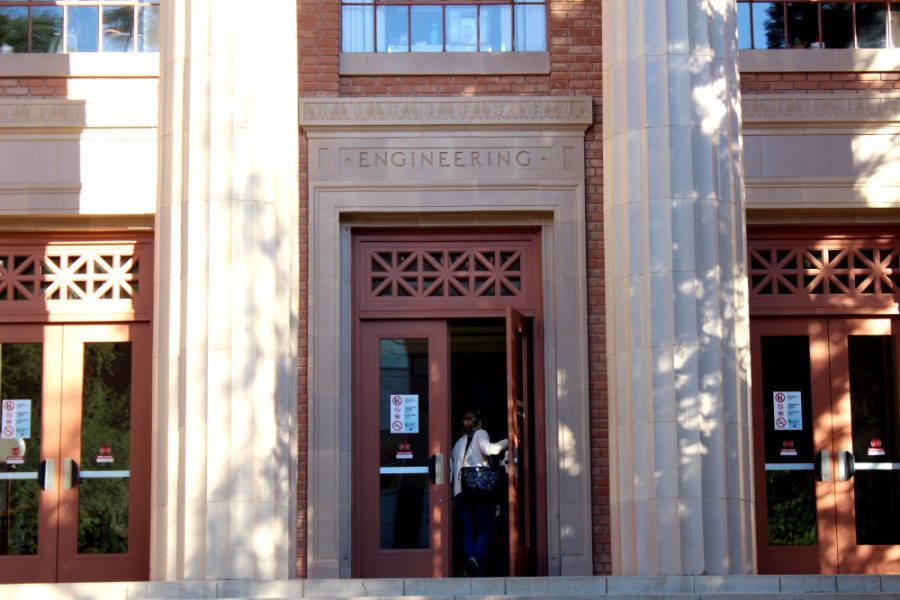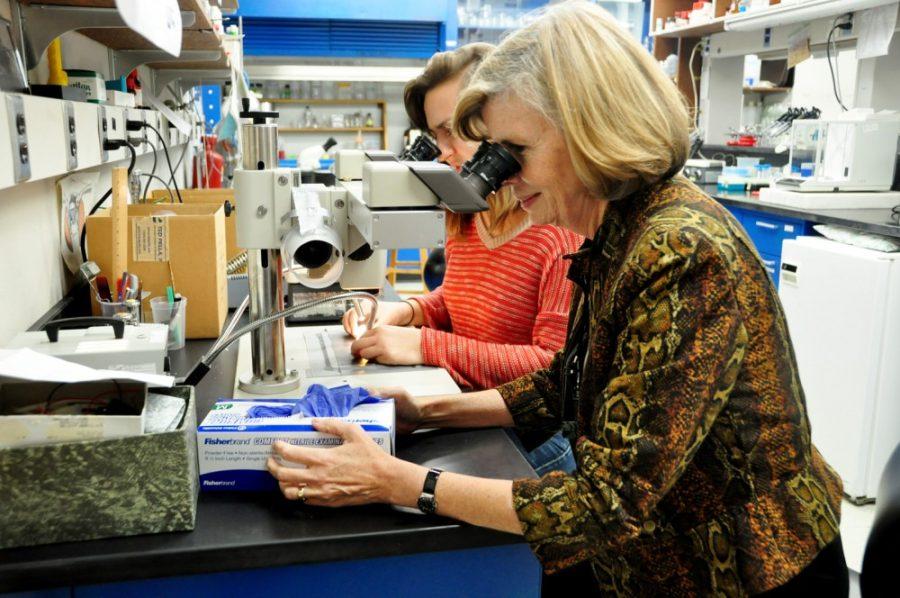Imagine being born with an incurable condition. A new therapy offers possible relief, not for your child, but for children in the future. What would you do?
“Don’t let the hype of a potential new therapy take over. The money and the prestige behind the hype are the problems; they are not the way to find a cure,” Paul Gelsinger told a crowded room full of University of Arizona graduate and medical students.
Tucsonan Paul Gelsinger is the father of Jesse Gelsinger, the first person to ever die as a result of a gene therapy clinical trial in 1999.
Gelsinger’s lecture, titled “Jesse’s Intent,” recalled the events that led to Jesse’s tragic death and the dubious practices and conflicts of interests of those doctors Jesse had trusted with his life.
Jesse was diagnosed with ornithine transcarbamylase deficiency syndrome after he fell into a coma before his third birthday. OTC is a rare metabolic disorder which leads to the buildup of ammonia from meat and other proteins in the diet and can result in death.
RELATED: Father of clinical trial victim to speak on campus
Jesse participated in a clinical gene therapy trial at the University of Pennsylvania not because it would cure his lifelong OTC but rather help scientists develop a therapy to treat dozens of liver disorders and save countless lives.
“He was a hero. I was so proud that he was not doing this for himself but for everyone,” Gelsinger said.
Four days after receiving the gene therapy injection meant to deliver healthy copies of the gene associated with OTC to Jesse’s liver cells, Jesse was taken off life support. The viruses, meant to target his liver cells, had spread throughout his body and become extremely toxic.
After his death, Food and Drug Administration and Department of Justice investigations revealed Jesse’s doctors failed to reveal and report critical adverse reactions to the treatment by previous patients and animal trials.
They did not follow the approved protocol to perform the experiment and had a vested financial interest in the treatment’s success through stock ownership in the company involved in the clinical trials.
“When researchers have ownership in what they are working on, they can lose perspective and not adequately communicate or see the dangers,” Gelsinger said.
Jesse’s case appears in textbooks, documentaries and science articles as an example of what can go wrong in a clinical trial and a reminder of the high ethical standards researchers must uphold.
“Jesse is a cautionary tale of what can go wrong when you let money and prestige be more important than the well-being of those subjects participating in the research,” Gelsinger said.
Gelsinger was invited to the UA by Katherine Ellingson, professor in Department of Epidemiology and Biostatistics, as part of her bio-ethics course.
Ellingson opened the lecture to the broader community, and lecture hall packed as Gelsinger spoke and answered questions for one hour.
“Gelsinger reminds us that the safety of trial participants relies on robust oversight, evidence-based decision making and transparent risk communication,” Ellingson said.
Mary Miller, Jesse’s sister and a bio-statistics graduate student at the UA, introduced her father.
“A lot of the data we examine in our studies is disconnected. We do not always realize that the things we do impact real people and families,” Miller said.
Ellingson hoped students took away a greater sense of their responsibility working in medical, health or research fields.
RELATED: An exoskeleton built on passion: Recent UA graduate turns passion for prosthetics into post-grad job
Gelsinger hoped students would remember his lecture and keep what is most important in perspective when practicing medicine or conducting clinical trials.
“I hope that once UA students get out into research or the medical field they have the perspective that their desire to advance their careers through publishing can sometimes be a detriment to those subjects they are working with,” Gelsinger said.
The wellness of clinical trial participants should always come first. They are all heroes, Gelsinger said, because they are trying to not only cure their own disease but help develop a treatment for others in the same situation, like Jesse.
Gelsinger said he is not against gene therapy and the new innovations being made, but he does approach new clinical trials with caution.
“Jesse was a good kid. Let us not let it happen again,” Gelsinger said.
Follow Randall Eck on Twitter















